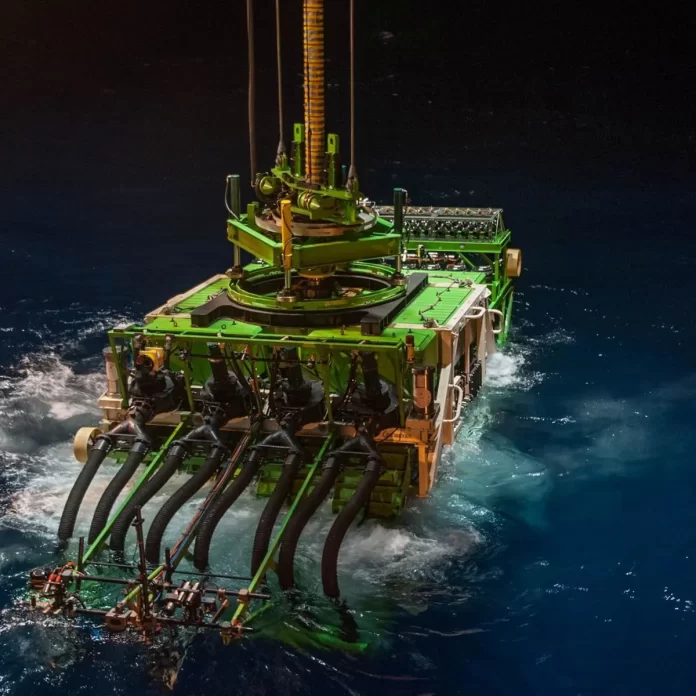Op Ed by Maureen Penjueli
On February the 7th, the European Union (EU) Parliament voted against Norway’s recent decision to advance deep-sea mining in the Arctic by reaffirming its moratorium position and called for the European Commission and its member states to promote an international moratorium on deep-sea mining. Here in the Pacific, on the 13th of February the Foreign Minister for Aotearoa (New Zealand), Hon. Winston Peters on his whirlwind tour of the region openly suggested that the Cook Islands should have the freedom to investigate deep-sea mining before being criticized! His comments display a total lack of understanding of regional dynamics and a level of ignorance about deep-sea mining (DSM).
The European Parliament resolution has much to offer the Pacific in terms of how we can address pro-DSM countries such as the Cook Islands. Here are a couple of key take-away lessons from that Resolution. Firstly, the EU Parliaments notes the Norwegian Parliaments (sovereign) decision on mining activities on its continental shelf in the Arctic. The recognition of sovereign rights however did not stop the EU Parliament in exercising it’s due-diligence function to ensure compliance with international treaties such as the United Nations Convention on the Law of the Sea (UNCLOS), the Convention of Biodiversity (CBD) and Biodiversity Beyond areas of National Jurisdiction (BBNJ) as well as regional obligations to protect the health of the (deep) ocean and biodiversity particularly in the context of the climate crises. Significantly the Parliament placed higher value on the role of (deep) oceans in terms of biodiversity, in carbon sequestration and storage in the fight against climate change and the intergenerational equity of a healthy ocean to future generations survival and well-being.
Secondly, the EU Parliament was cognizant that while mining activities on the Norwegian continental shelf is within its own jurisdiction, it will none-the-less have significant transboundary impacts and therefore Norway is legally obliged to avoid such impacts. The Parliament further noted the potential impact of Norway’s sovereign decision on other economic activities of mutual interest to both parties – namely fisheries and placed emphasis on the long-standing relationship as neighbors and partners. Finally, their decision is science and evidenced based on documenting meticulously how far the debate has progressed and the evidence particularly around impacts upon which the moratorium position has been advanced within the Union and elsewhere all the while navigating different member states positions on the issue which ranges from ban, moratorium and a precautionary pause.
Unlike in the Pacific where our governments have collectively struggled to hold any kind of critical discussion on this issue at the regional level. Our regional institutions, the Pacific Islands Forum Secretariat (PIFS), Pacific Community (SPC), South Pacific Regional Environmental Program (SPREP), and Forum Fisheries Agency (FFA) have tiptoed around the issue waiting for clear mandates to emerge, leaving Pacific civil society organizations (CSOs) and frontline communities to bear the burden of proving why DSM is a bad proposition for our region and that our governments do not have free, prior and informed consent of its people. In 2012, CSOs attempted to present over 30,000 signatures to Henry Puna who was the Prime Minister of the Cook Islands then calling for a pause, while in Papua New Guinea over a million signatures were presented to the former Prime Minister Peter O’Neil supporting a ban. In Vanuatu, Fiji, and Tonga, a wide cross-section of people supports a ban on DSM. Today, DSM has no social license to proceed and this is not hysteria by the uninformed, as Winston Peter implies.
Science has come a long way from a decade ago, even though there is still so much more to learn about the deep ocean, one of the least understood places on earth. Today, we know that the deep ocean is home to the highest levels of biodiversity. It is teeming with myriad life despite the throw away comments from mining proponents that there are just a few living things down there or worse still nothing lives down there. The science is also clear that mining the deep-sea will result in irreversible destruction of biodiversity and habitats and that recovery will be impossible within human time scales!
In addition, mining will result in transboundary harm outside of where activities will take place and will affect economic lifelines particularly in fisheries and potentially tourism. Here in the Pacific, we are challenged on two fronts, from activities that will take place within sovereign jurisdictions but also in areas beyond national jurisdictions such as the Clarion Clipperton Zone (CCZ) and Prime Crust Zone (PCZ), north of the Marshall Islands. We know that toxic and radioactive sediments from deep-sea mining activities will remain suspended in water columns for a long time and can travel thousands of kilometers to affect important fisheries including breeding and migratory grounds.
More significantly the global community has come to recognize (what we have always known as Pacific islanders) the real value of oceans in the fight against climate change often described as the blue heart of our planet. The ocean provides vital environmental services; producing oxygen, sequestering carbon, storing carbon in stable sinks whilst the currents distribute heat that keep our planet alive. These values challenge the claims by pro-DSM countries that minerals for electric vehicle batteries is what will save the climate. Industry players such as Volvo, BMW, Google, Samsung, Philips, Northvolt and Volkswagen have seen the light on these claims and have moved to not source nor finance deep-sea mining activities. The UN Environment Program has warned the finance community that there is no foreseeable way that financing of deep-sea mining activities can be sustainable given the significant environmental risks.
But it’s not all doom and gloom. Over a decade of work by CSOs and frontline communities has borne results on the political front – the emergence of three political blocks that have taken progressive moratorium position on the issue – the Pacific Parliamentarian Alliance on DSM; the Moratorium Coalition on DSM which at last count has seven Pacific Island Countries and territories signed up, and the sub-regional, Melanesian Spearhead Group. Tuvalu, a global leading authority on climate change, decided to rescind its contract in the Clarion Clipperton Zone is a decision that countries in the Pacific should pay attention to. Yet we still have some way to go as the region suffers from a ten year long debate held hostage by pro-Deep-Sea-Mining countries, namely the Cook Islands, Nauru, Kiribati, and Tonga, and industry players such as Deep Green.
The Pacific Islands Forum decision of 2023 which calls for a regional dialogue in 2024 on DSM is a step in the right direction, so perhaps the Pacific region can collectively step up in ensuring its due diligence role as stewards of the largest ocean and climate champions of the blue planet and have the hard conversations about sovereign rights and deep-sea mining in the context of a climate emergency and biodiversity crises!.
Maureen Penjueli is the Coordinator of the Pacific Network on Globalisation. For enquiries, email: coordinator@pang.org.fj

















